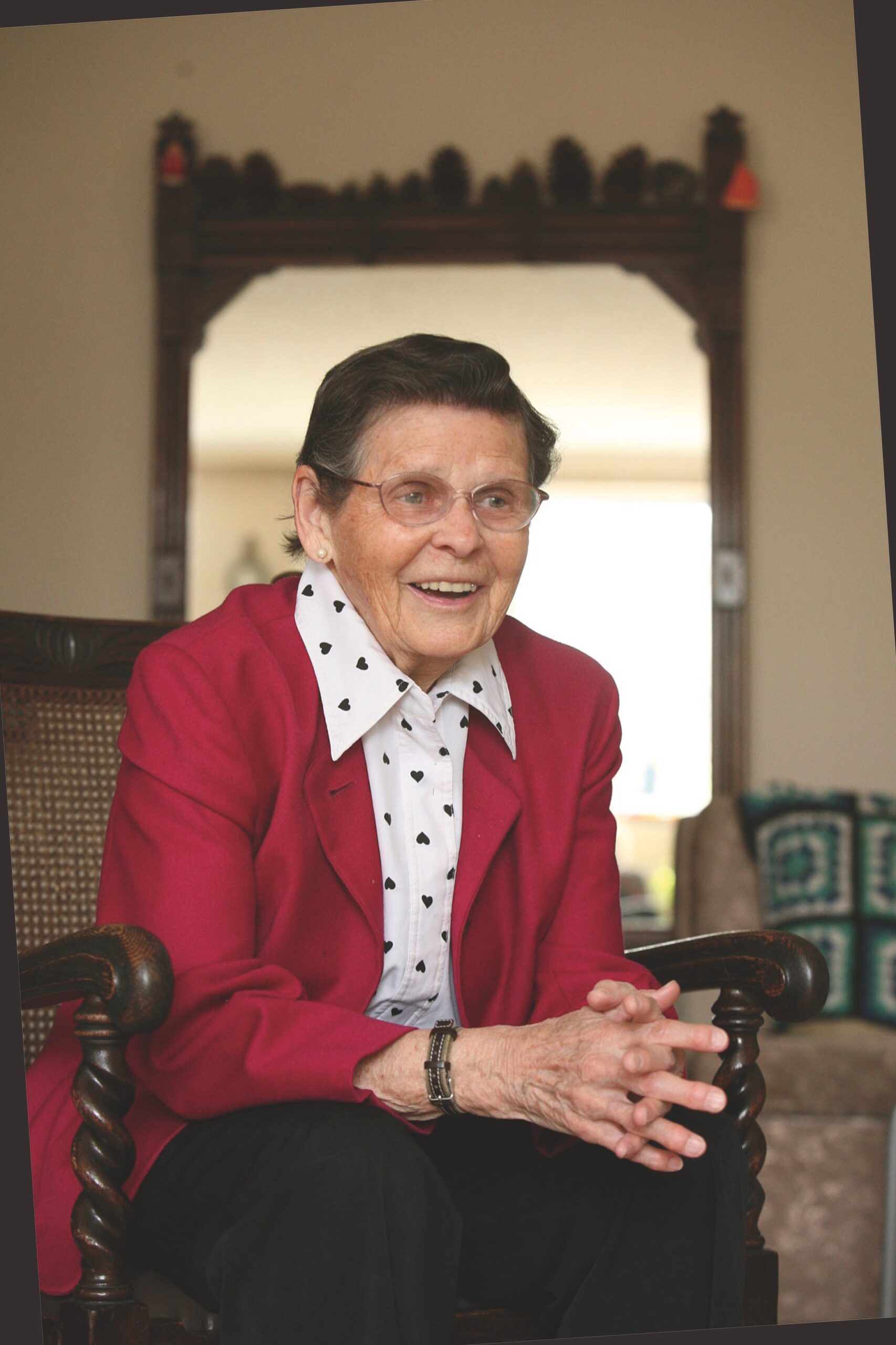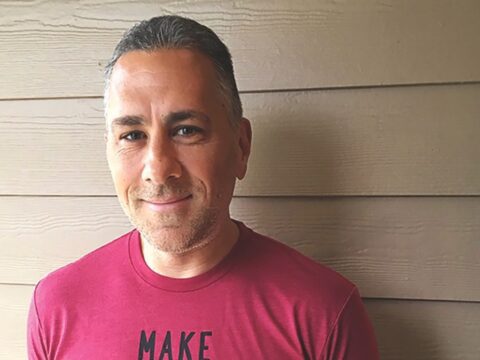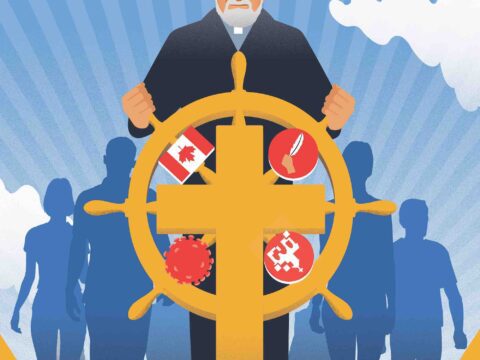For the Sake of the Common Good, an essay collection celebrating Very Rev. Lois Wilson’s life and work, recently hit the bookshelves. Now 95, The United Church of Canada’s first female moderator — who is also a former senator and past president of both the World Council of Churches and the Canadian Council of Churches — talks legacy.
On her favourite part of the book: There are many. I’m thankful for Allan Saunders’ chapter on my faith, “Witness to God’s Lament and Laughter.” He got it all right. Usually when people write about me, they don’t get it right.
He included the strong influence of my parental home in Winnipeg, and the influence of my early family canoe trips on my view of ecology, which are usually omitted. He recognized how my experiences shaped my theology, and the interaction between scripture and my own life. He got right my growth from a solely United Church to an ecumenical framework.
On the legacy of her generation of United Church activists: It’s our eagerness for social justice, which is based on the prophets (Amos, Isaiah, Jeremiah, Jesus). In the Senate, people say politics and religion don’t mix. But faith has to influence public policy. In terms of legacy, I hope we establish a good record on climate change. It’s the biggest crisis of our time.
On colonialism: Former moderator Stan McKay’s chapter shows that the land and children were stolen and that Indigenous Canada was thrown into complete chaos. There are more children in foster care than were in residential schools. Separating children from parents is a tragedy.
On land acknowledgments: Words only go so far. Then there has to be action, restitution, leading to possible reconciliation. The current fashion of land acknowledgment trips off the tongue easily, without any obligations — financial, political or other.
On feminism: When I was in the World Council of Churches, I helped launch the Ecumenical Decade of Churches in Solidarity with Women in 1988. One minister stood up and said, “Well, I have no trouble with my wife, so…” And another one said, “I’ll give you one year, not 10.” I remember thinking, “Uh, I wasn’t asking you to ‘give’ me anything. But I know it’ll take you a full 10 years to figure that out.”
On the war in Ukraine: I was in university when the Second World War started. I never thought my kids would have to watch another world war starting. It really pains me to see it.
On the secularization of activism: God is at work all over the world. Whether it’s recognized or not is beside the point. I recognize it. Whether people do or don’t have a faith, the question is, what can we do together?
On what she’s most proud of: My children, my 12 grandchildren, my nine great-grandchildren.
More on Broadview:
- The United Church is changing its model of ministry — for better or for worse
- Indigenous United Church leaders on Pope Francis’s apology
- Forget condos, these churches will become affordable rental units
On what she’s least proud of: All the things I should have done but didn’t. As you get older, you review your life constantly — things you should have done or said. That’s what faith is about, what forgiveness is about. The confession of sin and absolution are crucial to my faith. Things we’ve done and left undone: that’s what we confess. It’s the core of the Christian faith.
On where she hears God’s lament: In Ukraine. People who suffered under COVID. Indigenous people who have lost their identity, lands and governments. Those are some of the laments. The whole refugee situation, which is getting worse with climate change. There’s so much to lament. If you lament too much, you drown.
On where she hears God’s laughter: In people recovering their communities after COVID. Anyone restoring community is God’s laughter.
On her life now: I’m living in a seniors’ home in Toronto, puttering around. Half of the retired University of Toronto is here. There’s a lot of international experience among the residents. I’ve never heard of another place like this. The staff support us, but we do the programs. There’s an Amnesty group, an Indigenous group, a climate change group. There’s a lot of expertise here.
On her advice to younger women:
Carry on!
***
This interview has been edited and condensed for clarity. It first appeared in Broadview’s July/August 2022 issue with the title “Faith has to influence public policy.”
Pieta Woolley is a writer in Powell River, B.C.















I first knew Lois Wilson when I attended UCW national event “Called to Respond at Waterloo University.” We were attempting to learn how to put on clown makeup, and were having a good messy laugh, Lois and I .
I thoroughly respect Lois in all and everything she has written. Thank you.
Hello
I was really looking forward to the Zoom interview with Lois Wilson. July 4, 7pm Eastern. I subscribed to the newsletter and searched the website but still never found the link. How do I get on?
Very disappointed,
Ann
Hi Ann, I’ll reply to you via email! Thanks, Emma
Here’s a recollection of an event involving the Rev., in 1975, during the United Church of Canada’s 50th anniversary.
If these memories are correct, it was at this time that a lot of young people from all around the world were invited to Canada to participate in a youth program, including people from Africa, India, South Asia and East Asia and a few Europeans etc. as well as host Canadian UCC youth. The entire group might have numbered 100 or more.
At one point there was a day of workshops hosted at Emmanuel College in Toronto. One particular social justice-oriented workshop was run, if memory serves correctly, by the Rev. People were supplied with boxes of magazines collected by church members. These magazines included the usual weekly news magazines of the time such as Time Magazine and Macleans, women’s magazines such Chatelaine, random other magazines, and as well a surprising number of fashion magazines. The sort of reading material that could be found in middle class or upper middle class households in Toronto at the time.
The Rev. explained to the participants that they were to use the pictures in the magazines to make a presentation concerning the needs of the world at that time. Or something like that. It was a very edgy kind of thing to do because of the enormous gaps between Canadian youth and visiting youth many of whom were from “the Global South”.
The exercise was poorly conceived. Because the vast majority of the images that were available from the publications were advertising images.
Advertising images present a false and exaggerated idea concerning lifestyles in North America. One could think of exercise as a sort of a setup for criticizing the decadence and wealth of North America. By comparison the opportunities available outside of the wealthy Capitalist West were so much more limited.
In the few short hours available for the exercise not much learning or analysis could be expected. The only possible justification would be to trigger thoughts and feelings, from host or guest, which would result in some interesting discussion during the group presentations.
The saddest part of the event though was the reaction of several of the few working-class Canadian kids participating in the program. They seemed to intuit that the exercise was unfairly putting them in a place of privilege – a place to which they themselves were already excluded. The pictures from the advertisements showed a life that was not available to them.
The alienation of these Canadian working class UCC youths participating in the workshop was palpable – and expressed in an overall lack of interest in the whole exercise. To this day one’s heart goes out to those kids.
It’s a little anecdote from a long time ago. Imagine though multiplying this sort of insult a thousand times and over decades. It adds up to the sociology of blithely self-satisfied petty-bourgeois liberalism, thus the alienation and loss of working-class UCC church members. The suppression of class as part of liberal Church discourse is the sad scandal that never goes away. Betrayals and missed opportunities. It is to weep.